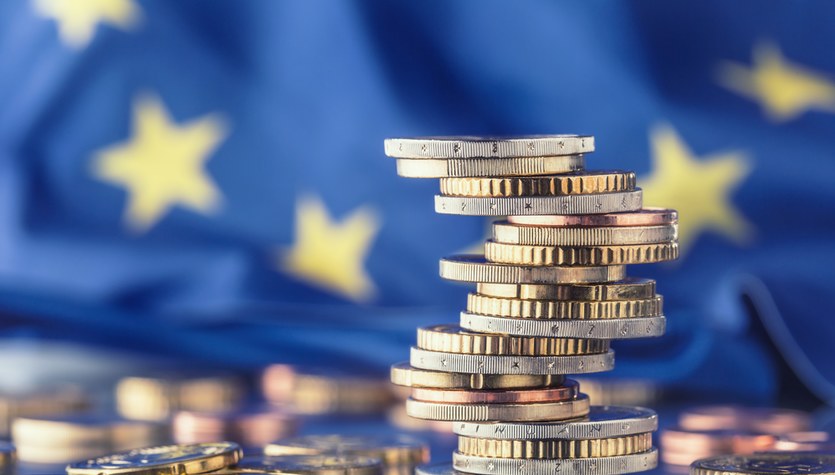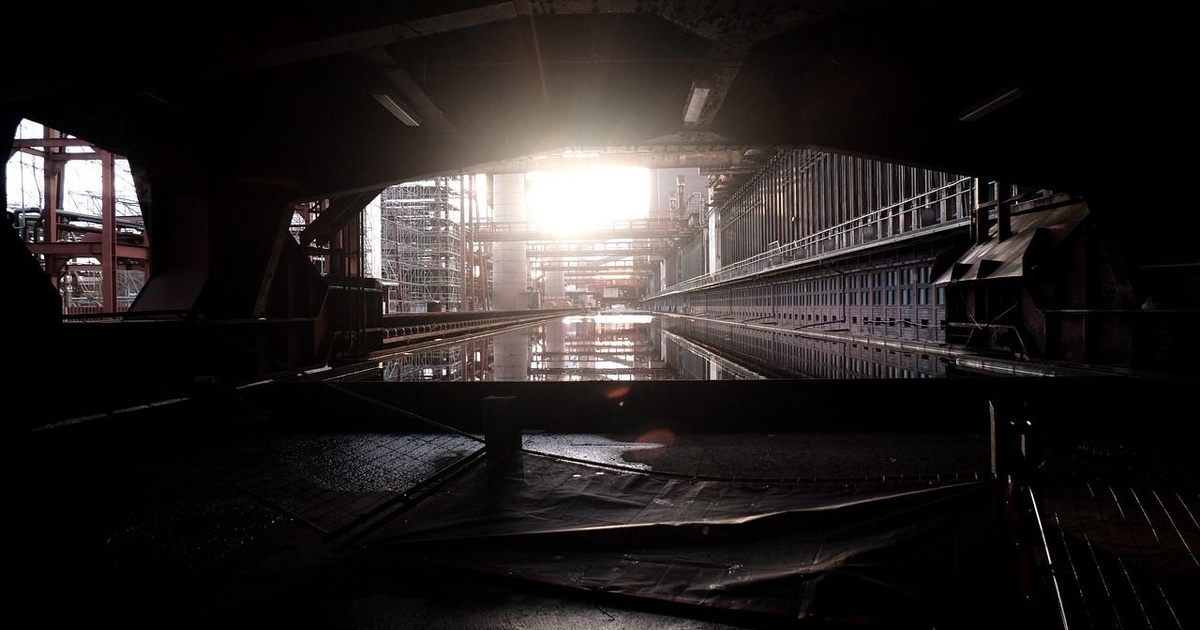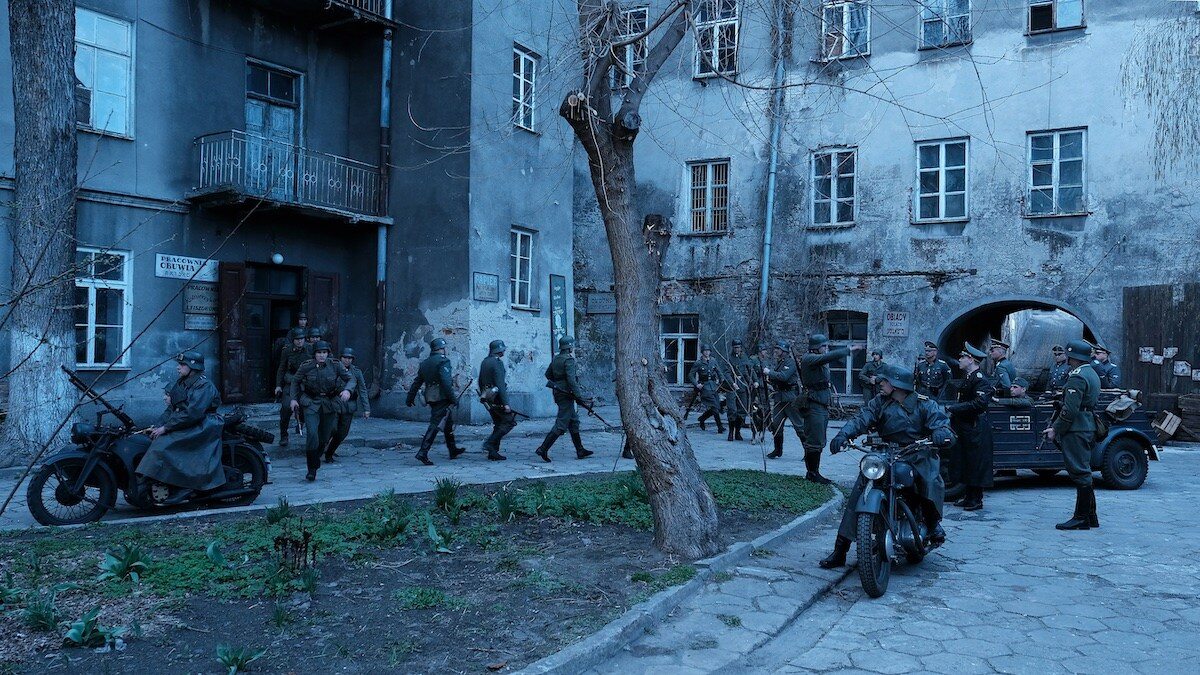Let’s start with the losses, because although they cannot be estimated yet, they are expected to be unimaginably huge. Perhaps even those caused by a pandemic crisis. European banks, companies, companies, large shippers and small traders as well as ordinary citizens will be hit hard. Russia was too attached to Europe, economically and financially, for its collapse to shock us.
Fortunately, since the annexation of Crimea, doubts about the connection of the European economy to it have increased. Banks have reduced their exposure to Russia since 2014, although they still have huge exposures there. The largest – French and Italian banks. According to the data of the Bank for International Settlements, at the end of the third quarter of last year, European institutions had approximately 91 billion dollars in receivables from Russian contractors. Of this amount, 41 billion dollars are in local currency, mainly in Russian branches of foreign banks.
French and Italian banks owed in Russia about $25 billion. Austrian banks – 17.5 billion dollars, American banks – 14.7 billion dollars. Not everything has been accurately counted yet. Immediately after the outbreak of the war, the American company Citigroup reported that its exposure in Russia amounted to 5.4 billion dollars, but a few days later it was estimated that it was still 10 billion dollars.
However, these are much smaller commitments than they were before the Russian invasion of Crimea. Then the exposures of French banks alone exceeded $50 billion, which means they have halved since then. Receivables to Italian banks also decreased slightly (from about 30 billion USD). The United States fell from about $40 billion in 2013, more than half.
At the end of September 2021, the Russian subsidiary of the Italian company UniCredit had 1.2 trillion rubles in assets, that is, at the current exchange rate of about 11 billion dollars. Loans account for more than half. The sanctions will bankrupt many UniCredit customers and the bank will suffer losses in Russia as well as in war-torn Ukraine.
The Russian company of Austrian International Bank Raiffeisen has more than 15.8 billion euros in assets. The French group Societe Generale, whose exposure in Russia is estimated at 18 billion euros, will have to write off a significant part of the value of three companies – Rosbank, DeltaCredit Bank and Rusfinance Bank. Maybe even fully.
“It’s possible that Western companies haven’t lost so much so quickly to geopolitics since the overthrow of the Shah in Iran,” Charlie Robertson, chief economist at Renaissance Capital, the global investment fund, told Reuters.
Although this money impresses everyone, it should not shake the foundations of Western financial institutions, as it did during the 2007-2009 crisis. The Dutch ING Groep reported that although its participation in Russian entities is 6.7 billion euros, and 0.5 billion euros in Ukrainian entities, it is, respectively, only about 0.9 percent. and 0.1 percent of all loans granted.
Rating agency Fitch said on Friday that even the complete writedown of Societe Generale and Unicredit’s investments in their Russian companies, as it would be in an extreme scenario, would reduce the core capital ratios of both banks by about 40 basis points and 15 points. BP straight. This will not bother these institutions.
“The ratios of both groups will remain well above their regulatory buffer requirements and we do not expect any rating action in these circumstances,” Fitch wrote in a press release.
Financial institutions are already estimating their exposures, but like other public institutions, they must determine at the end of the first quarter of this year what write-downs they will make for expected losses and overstate the value of their assets. Citigob’s chief financial officer, Mark Mason, said the losses could be just under half the Russian exposure under a severe crisis scenario.
Mutual funds are in even worse shape, as the decline in the valuation of Russian companies and bonds is staggering. According to the research firm Morningstar, the funds’ participation in Russian stocks and bonds is $60 billion. It is possible that most bank loans to Russian entities will be insured, but the losses will then pass to the insurance companies.
Russian customer loans are not the only problem of the global financial system. Financial relations between Western banks and Russian banks operating in Europe and the United States are also important. Such powerful institutions, such as Sberbank ($450 billion in assets, including $94 billion in foreign currency), or VTB ($250 billion in assets, of which $46 billion in currency)) are included in the sanctions list imposed by the United States over fuel transactions that have not It is being excluded from the SWIFT system, but its European company closed on Wednesday and is likely to go bankrupt.
Deposits with Sberbank Europe in Austria and its companies in Croatia, Slovenia, Hungary, Serbia and Bosnia and Herzegovina are guaranteed up to PLN 100,000. euro. If there are no buyers for its assets, people with more money there and businesses can simply lose out. The same applies to holders of bonds issued by the bank and its companies. These will be tangible losses for companies and financial institutions.
Bloomberg reports that Societe Generale and Credit Suisse have stopped financing trade in goods from Russia. This could mean the beginning of a “freezing” of all EU trade with Russia, except for fuel. Let us recall that EU countries import fuel from Russia worth more than 60 billion euros, which is more than a third of all imports from this country. For importers, the suspension of trade with Russia means losses that are still difficult to estimate. On the other hand, Russian imports from the European Union, Great Britain, Switzerland and Norway amounted to $120 billion in 2021, at 41 percent. All imports of Russian goods. European exporters will also face huge losses.
European concerns and small businesses have invested in Russia, Belarus and Ukraine. These companies include Germany’s Volkswagen, France’s Renault, Italy’s Pirelli, Finnish Nokia, but also many smaller companies. Direct investments in Russia – according to historical costs – amounted to more than 350 billion US dollars at the end of 2019 in the case of EU countries, and investments from the United States – 14.4 billion US dollars.
Russia made an offer to foreign investors. Deputy Prime Minister Andrei Belousov offered them three options. Either the company is still operating in Russia, or foreign shareholders hand over management to Russian partners and then they can return, otherwise it will stop its operations permanently, stop production and fire workers. Norway’s Equinor (formerly Statoil), owned by a state-owned real estate fund with $2.8 billion in assets in Russia, is a shareholder in Rosneft. He has already announced that all Russian assets will be written off due to losses, but he intends to sell his stake in Rosneft, which was $1.2 billion before the war.
Other Western oil companies, Russia’s largest investors, face such decisions. British Petroleum and Shell announced their desire to sell Russian assets. Shell said it would leave the company with the Sakhalin 2 LNG plant, which produces 11.5 million tons of LNG annually and exports it to Japan and China. Shell owns 2 in Sakhalin – 27.5 percent. shares and 50 percent. Owned by Gazprom.
At the end of 2021, Shell had assets in Russia worth about $3 billion. BP wants to sell 19.75 percent. Rosneft shares in Rosneft’s concerns, which could lead to losses of 25 billion US dollars, given the declining market value of Russian companies. The American company Exxon Mobil is considering which option to choose. Rosneft, which extracts oil and gas on Sakhalin, is worth $4 billion. In the fall, he announced that he intends to invest another 5 billion in production from new deposits.
The war has already led to an increase in the prices of raw materials, especially energy materials, which will lead to an increase in the already high inflation. Food will become more expensive, because war-torn Ukraine is one of the largest suppliers of food to European markets. Inflation will be one of the reasons for weakening the pandemic recovery in economies, as war and sanctions will exacerbate disruptions in supply chains.
In the short term, disruptions in the supply of energy and raw materials will have a negative impact on growth and in the long term will lead to higher inflation. Karsten Brzeski, ING Group’s global chief macroeconomic economist, wrote in Europe that the risk of stagflation has increased.
Economists have already taken seriously the inflation scenario with higher inflation and weaker growth after the pandemic. Particularly in Poland, which is experiencing very high inflation anyway, is particularly likely to be seen by markets as a “front-line” country, increasing currency risk and further weakening the zloty, the energy-intensive economy and energy mix being one of the worst in the union entire.
It is highly unlikely that the embargo on Russian oil and gas will quickly join the restrictions and sanctions, as Ukrainian President Volodymyr Zelensky wants. But next week, the European Commission will present a strategy to make the European energy union independent of Russia. Such a strategy would likely be very costly, as it would require the construction of a large infrastructure – LNG terminals (the German government has already announced the construction of two), cross-border pipelines, and inversion stations. One of the EU’s most mysterious projects to date – the energy union – may become a reality. This is the first strategic opportunity.
The European Union pays Russia more than 60 billion euros annually for energy resources, and if coal is added to them, it will be 64 billion euros. And – as we know – Putin finances the war with this money. Remember, however, that 10 years ago it was almost twice that number. The volume of trade in other goods between the European Union and Russia also decreased after the invasion of Crimea. Imports from Russia fell to less than 100 billion euros from more than 150 billion euros before the annexation. More than half of Russia’s imports are crude oil. The second strategic opportunity is to accelerate the transition to renewable energy in Europe.
Indeed, the “green” shift seemed to stop as his criticism became political fuel when energy prices rose before the war. Why did this happen? Jürgen Stark, former member of the European Central Bank’s Executive Board and Governing Council and former vice president of the Bundeswehr, and Thomas Mayer and Gunter Schnabel of the Flosbach von Storch Research Institute argue that this increase was due to the strong decline in brown production capacity during the pandemic and the lack of compensatory compensation for this Decline in the growth of energy production from “green” sources. So the prices of “green” energy have not fallen enough due to the lack of sufficient capacity and the lack of infrastructure to absorb it. The conclusion is that we need to increase our capacity and build infrastructure.
The Union’s High Representative for Foreign Affairs and Security Policy, Josep Borrell, previously mentioned the third opportunity. It is the geopolitical importance of the union. Only the Federation as a whole can be of geopolitical significance. Until a week ago it was unimaginable. In light of the Russian threat, the governments of Poland and Hungary speak the same language of society. This may be the second basis – after the Reconstruction Fund – for European integration.
Jacek Ramotovsky

Echo Richards embodies a personality that is a delightful contradiction: a humble musicaholic who never brags about her expansive knowledge of both classic and contemporary tunes. Infuriatingly modest, one would never know from a mere conversation how deeply entrenched she is in the world of music. This passion seamlessly translates into her problem-solving skills, with Echo often drawing inspiration from melodies and rhythms. A voracious reader, she dives deep into literature, using stories to influence her own hardcore writing. Her spirited advocacy for alcohol isn’t about mere indulgence, but about celebrating life’s poignant moments.




![Minimum wage 2022 - net account. Increase in a month - not just the lowest salary [1.12.21]](https://www.moviesonline.ca/wp-content/uploads/2021/12/Minimum-wage-2022-net-account-Increase-in-a-month.jpg)



